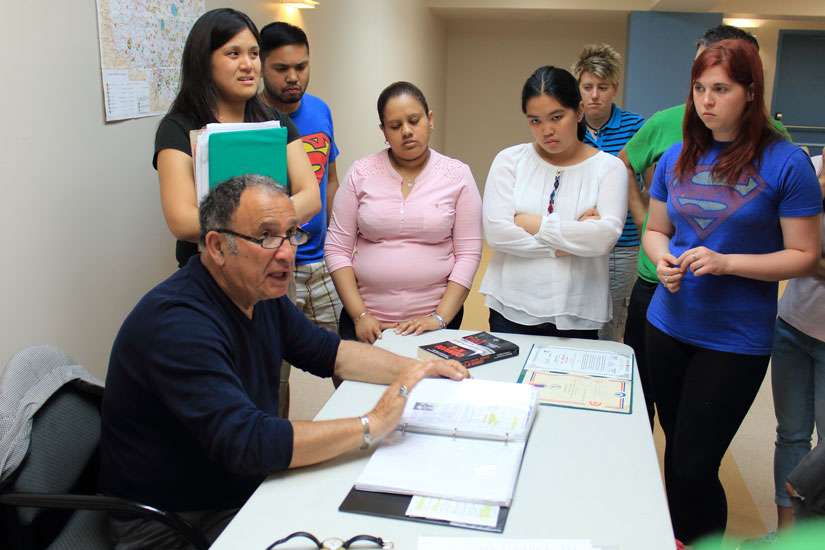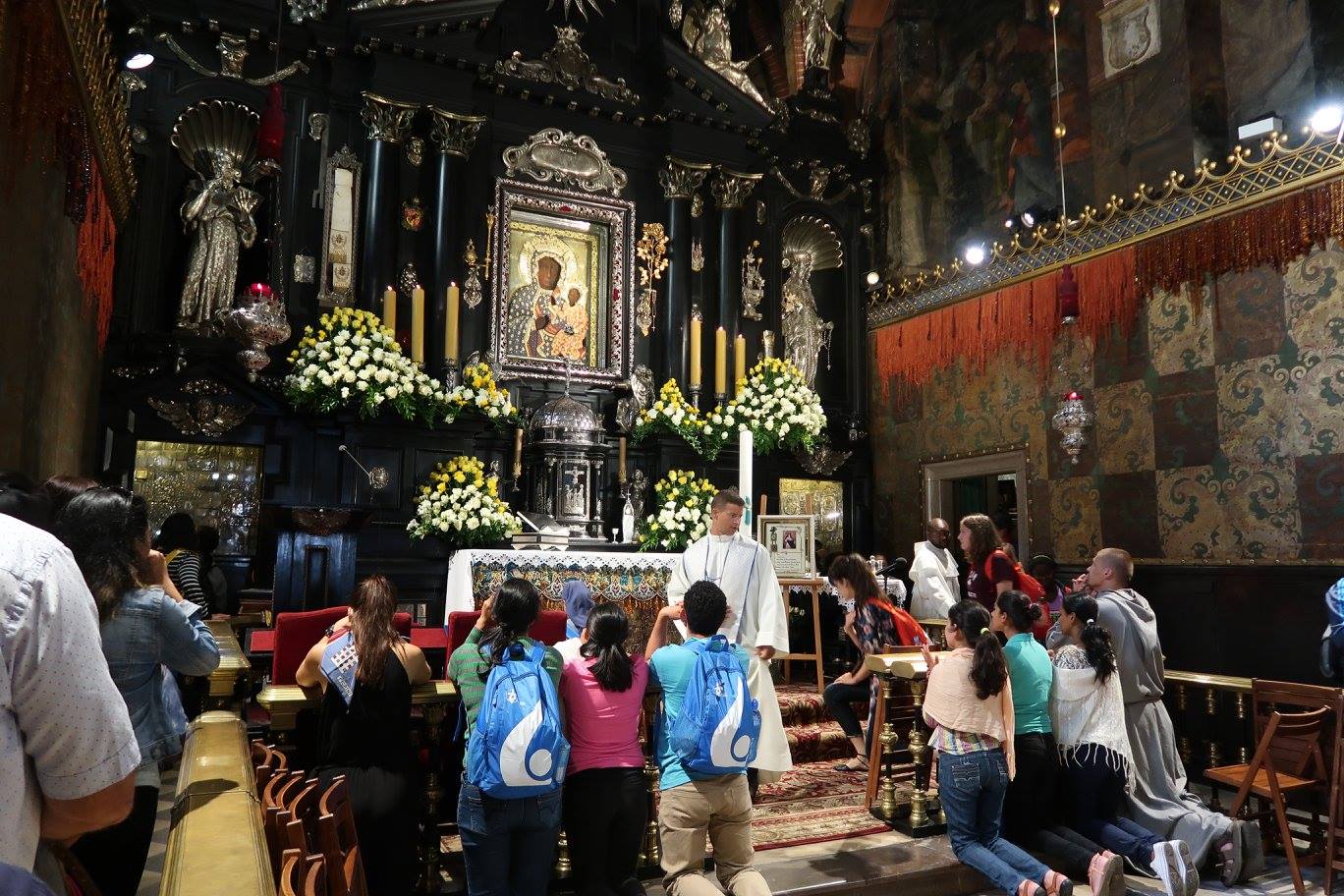"So, you'll go to Auschwitz, this summer? I've never been there. I'll never go to Auschwitz. It's too hard," the 76-year-old Celemencki told them.
Surely, Celemencki, who is Jewish and born in France, knows about the place.
"This is where my mother was murdered," he explained to the dozen pilgrims gathered June 4 in the rectory of St. Bruno Parish in the Diocese of St. Jean-Longueuil on Montreal's South Shore.
Celemencki was only 2 when his mother, Faiga Tabacznick, was arrested by the French military in 1942 and sent to Poland. At the time, children were not being arrested and deported – just yet. So his father sent Leon and his two sisters to orphanages, a safer place.
After the war, in 1945, an elderly Catholic couple took care of the three children. "They were really nice. We called them Grandma and Granddad," Celemencki recalled. Unfortunately, he has no real memory of spending time with his father, who was a peddler. He died in the early 1960s, around the time Celemencki moved to Canada.
He paused and then tapped his fingers twice on a map of Poland to show the group where Krakow and the Auschwitz concentration camp are located.
"In Auschwitz, there's a room as big as this one filled with mounds of hair. Then there's another filled with shoes of men, women and children. You're going to see horrible things," he warned.
"How and why have we been able to commit such horrific acts? It happened, and it must never happen again," Celemencki said.
Celemencki now lives in Laval, a Montreal suburb. He moved to Quebec in 1963. He helped manage a grocery store before becoming a florist. He and his wife Bella have three daughters and four grandchildren.
Celemencki lost all of his grandparents, as well as three uncles, seven aunts, and many cousins during World War II. "All of them have been assassinated in the Auschwitz and Treblinka concentration camps," he said. Celemencki often gets to tell his story to young audiences in collaboration with the Montreal Holocaust Memorial Center.
Norman Levesque, a pastoral minister who will accompany the diocesan delegation to Poland, said the meeting with someone so intimately connected to the Holocaust is important for the preparation the young adults are going through prior to World Youth Day, which runs July 26-31.
"Do you want us to make any specific gesture on your behalf, when we'll be in Auschwitz?" asked Levesque at the end of the meeting.
"I'm moved by your proposal," Celemencki replied. "What I'd like is that when you'll be back home you tell people what happened in Auschwitz. And that you commit to never accept any kind of racism or anti-Semitism. We're all equal, regardless of our religion or the color of our skin, and we all long for happiness. The sun shines for every one of us.”





